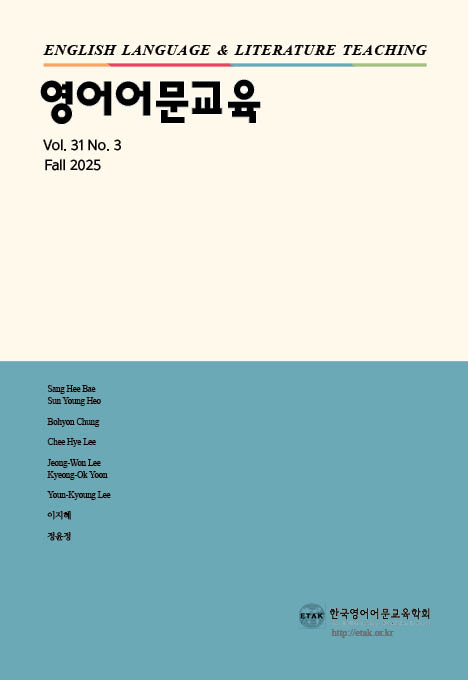학술논문
Critical Reflections on the Peace Corps/Korea TEFL Program: Success, Failure, and Legacy
이용수 0
- 영문명
- 발행기관
- 한국영어어문교육학회
- 저자명
- Chee Hye Lee
- 간행물 정보
- 『영어어문교육』제31권 제3호, 39~63쪽, 전체 25쪽
- 주제분류
- 사회과학 > 교육학
- 파일형태
- 발행일자
- 2025.09.30

국문 초록
This paper examines the evaluation of the Peace Corps/Korea TEFL Program (1966-1981). Contrary to prevailing assessments of its success, this study examines the program through the comprehensive interrelationship of the Peace Corps' three proclaimed goals: training manpower through English education and promoting cross-cultural understanding between Americans and host country nationals. Employing qualitative content analysis methods and drawing on primary archival documents, official reports, and volunteer testimonies, the study reveals that despite statistical achievements in formal English instruction, the program fell short in terms of substantive educational impact - particularly in improving students' English communicative competence. However, it also highlights the often-overlooked grassroots aspects of cross-cultural understanding that constituted a different kind of success, especially through extracurricular activities and informal interactions. Special attention is given to university-level TEFL initiatives, where more equitable conditions enabled meaningful cultural connections between volunteers and Korean students. The paper analyzes the institutional and contextual factors behind the relative success of these initiatives and argues that, amid the complex domestic and international political, social, and military challenges faced by both Korea and the U.S. during the 1960s and 1970s, Peace Corps Volunteers and Korean students established mutual understanding that facilitated cross-cultural exchange between the two nations.
영문 초록
목차
I. INTRODUCTION
II. PEACE CORPS/KOREA PROGRAM
III. METHODOLOGY
IV. DISCUSSION
V. CONCLUSION
REFERENCES
키워드
해당간행물 수록 논문
참고문헌
최근 이용한 논문
교보eBook 첫 방문을 환영 합니다!

신규가입 혜택 지급이 완료 되었습니다.
바로 사용 가능한 교보e캐시 1,000원 (유효기간 7일)
지금 바로 교보eBook의 다양한 콘텐츠를 이용해 보세요!



